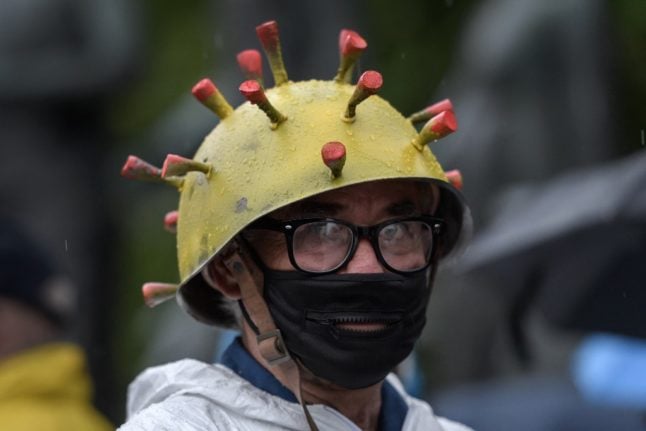With hardly a face mask in sight, the demonstrators marched through the small, picturesque town of Rapperswil-Jona waving large Swiss flags and shouting “Freedom”.
Police in the St Gallen region said in a statement that around 4,000 people showed up for the demonstration, which was not granted a permit.
No violence was reported during the protest which was the latest in a string across the country organised by a group called Stiller Protest (silent protest).
The authorities said they had attempted to dissuade people from participating in the rally, stopping cars headed towards the town centre and explaining the illegal nature of the gathering.
They said however that they had chosen not to forcibly break up the event for fear the situation could escalate, insisting that “a tough crackdown would not have been justifiable under the rule of law”.
IN PICTURES: Inside Switzerland’s anti-coronavirus lockdown protests
Police said they had briefly detained two people and had expelled 45 people from the town for 24 hours.
They had also demanded that a crowded coach headed to the protest turn around.
The protesters accuse the Swiss government of using dictatorial powers to impose restrictions aimed at reining in Covid-19 transmission.
Switzerland is in the process of gradually loosening its Covid restrictions with sports facilities and outdoor areas of bars and restaurants for instance permitted to reopen earlier this week.
But critics say the return to normality is taking too long.
The wealthy Alpine nation of 8.6 million people has counted nearly 650,000 cases and close to 10,000 deaths since the start of the pandemic.
Nearly 10 percent of the population has been fully vaccinated.
While the Covid-19 situation in the country appears fairly stable, it announced Saturday that it had detected its first case of the Covid-19 variant being partially blamed for the explosive outbreak in India.



 Please whitelist us to continue reading.
Please whitelist us to continue reading.
Member comments